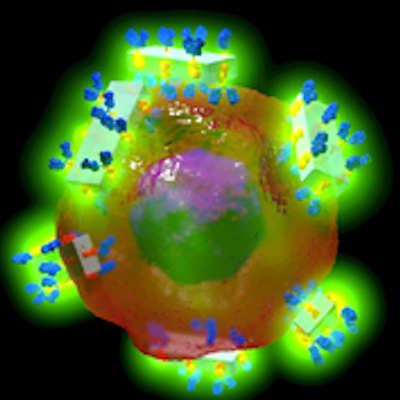October 18, 2022 -- Scientists at the Perlmutter Cancer Center at New York University (NYU) Langone Health have created antibodies designed to target and kill cells that develop resistance to targeted therapies, thereby tackling a barrier to durable anticancer effects.
The study, details of which were published October 17 in the journal Cancer Discovery, grew out of an assessment of the weaknesses of the two main advances in oncology treatment of the past 20 years, namely targeted therapies and immune therapies. Targeted therapies are small molecules that hit mutant oncogenes or their downstream signal transduction cascades. Immune therapies are antibodies and cells designed to turn the power of the immune system against tumors.
Both approaches have limitations. Targeted therapies can cause high response rates but many patients relapse in the following months and years. Immune therapies, in contrast, typically trigger responses in a smaller percentage of patients but can cause durable remissions, including likely cures.
Researchers identified the inability of targeted therapies to evoke sustained antitumor immune responses as a potential cause of the limited durability of their effects. That thinking led the researchers to try to combine the responses of targeted therapies with the durability of immune therapies.
The attempt to realize that goal rests on the changes induced by targeted therapies. Cancer cells present mutant peptides derived from oncoproteins on their surface. However, the cells still only differ in small ways from their normal counterparts. When acted on by a targeted therapy, cancer cells present distinct drug molecule neoantigens that may make it possible for antibodies to recognize them. Dr. Benjamin Neel, PhD, the Laura and Isaac Perlmutter Director of Perlmutter Cancer Center, explained the findings.
"Our results further show that the antibodies attach to drug molecules only when presented by [major histocompatibility complexes] on cells, and so could be used in combination with a drug. When used in combination with such antibodies, a given drug would only need to flag cancer cells, not fully inhibit them. This creates the possibility of using drugs at lower doses, potentially, for reducing the toxicity sometimes seen with covalent inhibitors," Neel said in a statement.
To test the idea, the team developed HapImmune antibodies designed to recognize drug neoantigens. The work led to preclinical proof-of-concept studies of antibodies designed to recognize neoantigens on cancer cells exposed to sotorasib, the KRAS inhibitor sold by Amgen as Lumakras, and osimertinib, an epidermal growth factor receptor (EGFR) inhibitor sold by AstraZeneca as Tagrisso. In experiments with KRAS mutant cancer cells grown in cell cultures, a HapImmune-based bispecific T cell engager selectively and potently killed sotorasib-resistant lung cancer cells upon treatment with the KRAS inhibitor.
Going forward, the researchers plan to study their platform in live animal models and to use more pairs of drugs and the disease-related protein fragments as targets.
Copyright © 2022 scienceboard.net









